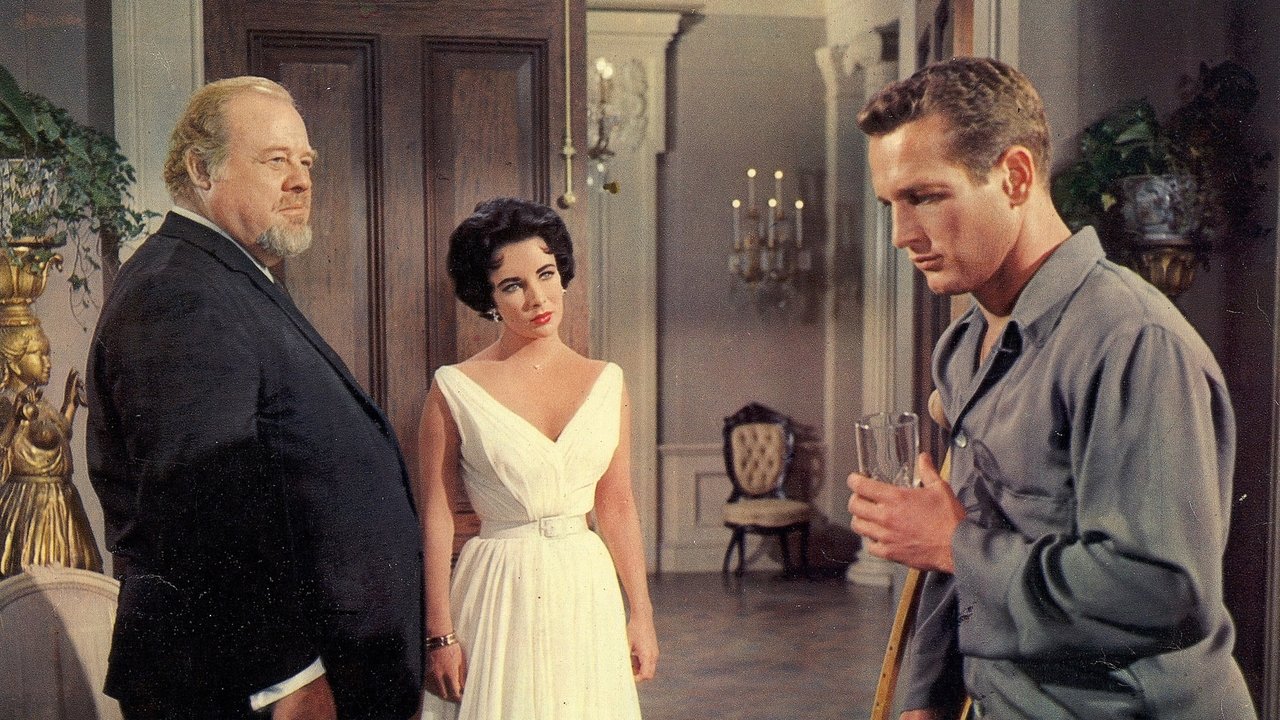

Cat on a Hot Tin Roof shows incredible quanlification on Paul Newman and Elizabeth Taylor's performance.During watching this film,one who appreciates it must contribute adequate concentration to their expression.
... View MoreCat on a Hot Tin Roof is a story that people like to remake, but I don't really know why. In my opinion, it's not Tennessee Williams' masterpiece, and the supporting characters can get on the audience's nerves pretty quickly. The only reason I can imagine why everyone wants to take a crack at it is because the original is so beloved, other actors say to themselves, "I want to be Elizabeth Taylor!" or "I want to be Paul Newman!" If you've never seen a Tennessee Williams story, here's the skinny: It's set in the South, a key plot point is a sexual problem, there's an "old world" family drama, a hint of male homosexuality, and it's usually all during a very hot summer. Also, the movies are based off of plays, so there will be lots of monologues. I'm not dissing Tennessee Williams; I actually love many of his plays. I just wanted to let you know what to expect.In Cat on a Hot Tin Roof, a childless married couple is on the brink of divorce. They bicker and argue, all through the wife's family's visit. If you've heard of the characters Maggie the Cat or Big Daddy, they originate from this story. Obviously, with two beautiful people in the lead roles, this movie is enjoyable to watch, and the tension between them sparks off the screen. It might not end up being your favorite old movie, but it's worth a viewing.
... View MoreOhboy! Taylor, Ives and Newman in their prime. This was supposed to be a Netflix delight.On paper, as a literary vehicle, maybe. On screen it was cardboard stereotypes playing small personal melodramas. Sound quality very poor, alternately too loud and too soft, and only fully intelligible at high volume. Add to that monologues delivered way too rapidly to be understood, much less comprehended. This play would do better in a small theater with good acoustics. The movie would have done better with a smaller-than-life cast, playing down to the level of the pathetic characters instead of pumping them up into cartoons.A half hour was enough time spent sucking this bitter pill, and back in the mail whence it came.
... View MoreThis is a play from what we might call the First period of Tennessee Williams' prolific career, the time - roughly a decade from the mid- forties to mid-fifties - when he turned out a fine body of work from The Glass Menagerie through A Streetcar Named Desire, The Rose Tattoo, Summer and Smoke and including, towards the end of this period, Cat On A Hot Tin Roof. Whilst it has definitely been sanitized and diluted by Hollywood an even greater sin is the fact that not one single frame tells us we are in the Deep South and for all the authenticity on display we could just as well be in Bangor, Maine, or Kokomo, Indiana. Writer-director Richard Brooks must be a graduate student of irony: before he began directing films Brooks wrote a couple of fine novels, one of which, The Brick Foxhole, was adapted for the screen and, with a new title, Crossfire, was directed powerfully in 1948 by Edward Dymytryk. Brooks wrote a novel about how hate can lead to murder, a homosexual is killed just for being a member of a minority group. In 1948 Hollywood no one was about to put a gay man on screen so the victim became Jewish, another minority group. Ten years later Brooks was STILL not allowed to touch on the possible homosexuality of one of the three leading characters, Brick Pollitt, played by Paul Newman, meaning other reasons had to be fashioned for his alcoholism and aversion to having sex with his wife, Maggie the Cat, played by Elizabeth Taylor. The third lead was Big Daddy Pollitt, played by Burl Ives, whose terminal cancer was a handing metaphor for the 'decaying Magnolia' school of writing to which it belongs. Williams scholars will always want to see it but it is mediocre at best
... View More